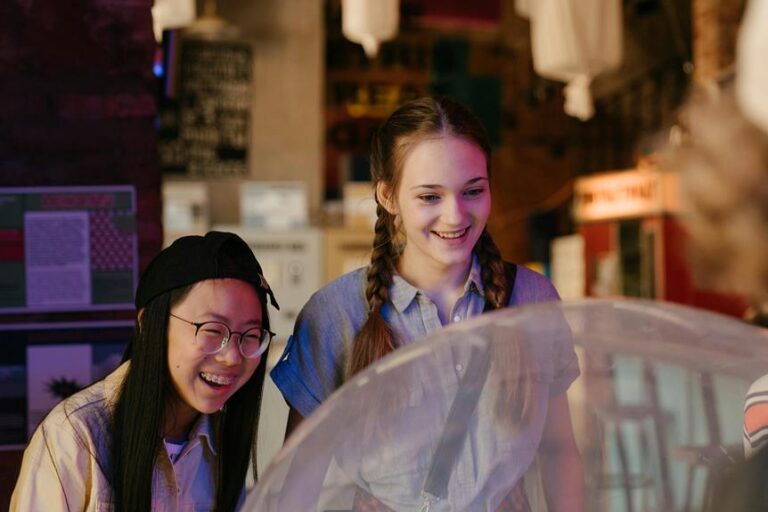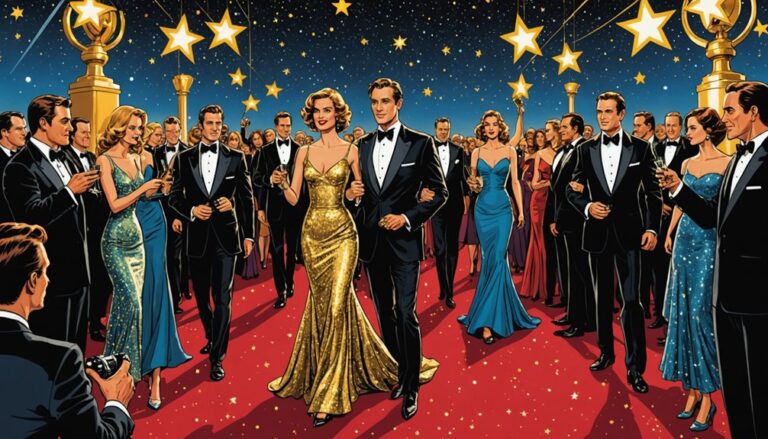What Are the Entertainment
You've got access to more forms of entertainment than ever before, from movies and TV shows to video games and live events. The global entertainment industry is massive, generating over $2 trillion in annual revenue, and providing jobs for millions of people. With the rise of streaming platforms, you can now access a vast library of content at your fingertips. Whether you're into passive entertainment like watching movies or active engagement like playing video games, there's something for everyone. And with the industry continuously evolving, what's next? Stay tuned to find out what's shaping the entertainment world.
Evolution of Entertainment Forms
The evolution of entertainment forms is a centuries-long process that has seen numerous transformations over time.
You've got to admit, it's pretty cool to think about how we've gone from ancient oral storytelling traditions to binge-watching our favorite shows on digital streaming platforms.
Historical spectacles like gladiatorial games in ancient Rome might seem brutal now, but they paved the way for competitive sports to become the highly organized events we understand today.
As media shifted from live performances to recorded ones, audience engagement changed, and with the digital evolution, entertainment is now more accessible than ever.
It's no surprise that sports and recreational activities have gained a global reach, and we can't get enough of them.
The Entertainment Industry and Economy
Generating billions of dollars in revenue each year, the global entertainment industry has cemented its position as a significant contributor to the global economy.
You're likely part of the reason why – whether you're a music lover, a movie buff, or a gamer. The entertainment economics are staggering, with an estimated revenue of over $2 trillion annually.
The industry employment opportunities are vast too, with millions of people working in roles ranging from performers to marketing professionals. The video gaming industry alone is valued at over $200 billion globally.
As you consume your favorite forms of entertainment, remember that you're also contributing to the local economies through tourism and events.
It's no wonder the industry's economic impact is profound.
Psychological and Social Implications
As you engage yourself in entertainment, you might start to notice how it affects those around you – and yourself.
It's pretty fascinating to see how a funny movie or a catchy song can bring people together, creating a sense of community and shared experience.
But have you ever stopped to think about the deeper impact of entertainment on our social bonds, emotions, and behaviors?
Social Bonding Effects
Social bonding is a fundamental aspect of human connection, and entertainment plays an essential role in facilitating it. You've probably experienced this firsthand – think about how attending a concert or watching a funny movie with friends can bring you closer together.
| Entertainment Type | Social Bonding Effect |
|---|---|
| Group activities (sports, festivals) | Fosters community identity, shared experiences |
| Interactive engagement (gaming, live streams) | Enhances social connections, friendship formation |
| Humor-based events (comedy shows, sitcoms) | Strengthens friendships, elevates mood |
Participating in cultural events or festivals also promotes cultural appreciation and understanding, allowing you to bond with others over shared interests and values. Whether it's through laughter or shared experiences, entertainment has the power to bring people together and strengthen social connections.
Emotional Experience Impact
The emotional impact of entertainment is a multifaceted phenomenon, with far-reaching psychological and social implications.
You've probably experienced this firsthand – who hasn't laughed, cried, or felt a rush of excitement while watching a movie or listening to music?
Entertainment can evoke strong emotions, from joy to sadness, and even nostalgia. When you become fully engaged in a narrative, you experience narrative immersion, which can lead to emotional catharsis.
This can be incredibly therapeutic, allowing you to process your emotions in a healthy way. Plus, interactive entertainment like video games can even help you develop emotional resilience and coping skills.
Behavioral Influence Patterns
Entertainment's influence on behavior patterns runs deep, molding consumer habits and societal trends through storytelling and media representation.
When you engage with entertainment, you're not just a passive viewer – you're part of a participatory culture that can shape your attitudes and behaviors.
Narrative influence can be particularly powerful, with stories and characters evoking emotional resonance and cultural representation that can stick with you long after the credits roll.
But beware: behavioral conditioning can occur through repeated exposure to certain genres or themes, and media literacy is key to recognizing these subtle influences.
Impact of Technology on Entertainment
You can't escape the fact that technology has been a total game-changer for entertainment.
With streaming services like Netflix and Disney+ at your fingertips, it's no wonder viewing habits have changed dramatically – and the numbers back it up.
The global streaming industry is now worth over $70 billion, and it's only going to keep growing.
Evolution of Entertainment Platforms
One of the most significant changes in recent years has been in the way we consume entertainment, thanks to rapid advancements in technology.
Streaming trends have been on the rise, with services like Netflix and Hulu changing the game. You now have access to a vast library of content at your fingertips, and it's no wonder the global streaming market was valued at $50 billion in 2021.
This shift has made content more accessible than ever, and it's clear that consumers are loving the flexibility and variety that comes with on-demand viewing.
With just a few clicks, you can watch your favorite shows or discover new ones, making entertainment more convenient and enjoyable than ever.
Changing Consumption Patterns
The way people consume entertainment has undergone a significant shift, largely driven by rapid technological advancements. As a result, you're now spoiled for choice when it comes to accessing your favorite shows, movies, and music. The rise of streaming services has made it easier than ever to enjoy entertainment on-demand.
| Traditional Entertainment | Modern Entertainment |
|---|---|
| Cable TV and DVDs | Streaming services like Netflix |
| CDs and Radio | Music streaming services like Spotify |
| Movie Theaters | Virtual Reality (VR) experiences |
This shift has also enabled greater digital engagement and audience interaction. You can now connect with your favorite artists and creators on social media, and even influence the content they produce. With the rise of VR and AR, the future of entertainment is looking more immersive than ever.
Entertainment Across Cultures and History
Entertainment's evolution has been a long, winding road, marked by a diverse array of cultural influences and technological innovations. As you explore the history of entertainment, you'll notice its cultural significance and how it reflects the historical context of its time.
From ancient festivals to modern-day digital platforms, artistic expression has been a cornerstone of entertainment. The evolution of humor is also fascinating – jesters and mimes used satire to comment on social norms, while today's comedians use their platforms to address societal issues.
Entertainment rituals have played a huge role in shaping societal values, and audience engagement has been key to their success. With global influences, entertainment has become a melting pot of cultures, making it more accessible than ever.
Types and Categories of Entertainment
Three primary types of entertainment exist, each catering to different preferences and levels of audience engagement: active, passive, and interactive.
You're probably familiar with passive entertainment, like watching movies or reading a book – it's easy and doesn't require much effort. Active entertainment, on the other hand, gets you moving, whether it's playing sports or board games.
Interactive entertainment is a mix of both, like attending concerts or theater performances. Entertainment genres are diverse, and content diversity caters to various cultural preferences.
With the rise of streaming platforms and social media, audience engagement has become more dynamic. Different entertainment mediums, like TV, music, and video games, offer something for everyone, making it easier to find your perfect form of entertainment.
Final Thoughts
You've just taken a wild ride through the evolution of entertainment, and it's clear that this industry is a beast that's here to stay. From ancient theater to modern-day social media, it's been a game of constant adaptation. With its impact on the economy, culture, and our psyches, it's hard to deny the power of entertainment. So, buckle up and get ready for the next big thing – because in this world, the show must always go on.







